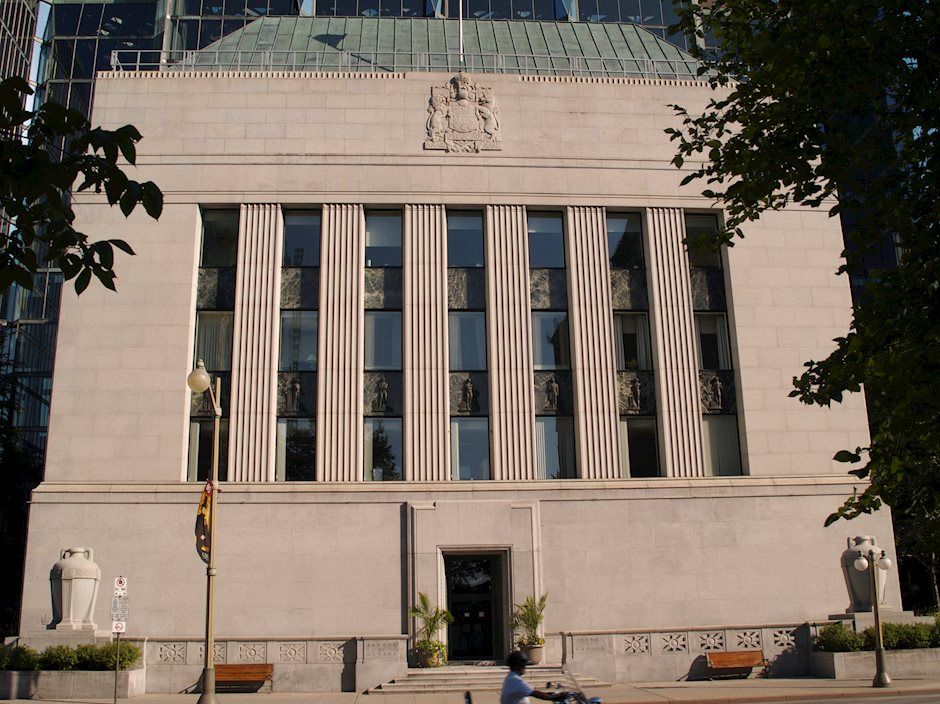BoC Meeting minutes: Central bank feels upside pressure on inflation will continue to decline

According to the Bank of Canada's (BoC) minutes from the October 2024 meeting that was released Wednesday, the governing council felt upside pressures on inflation will continue to decline, so the monetary policy did not need to be as restrictive.
Key quotes
Ahead of the Bank of Canada's October 23 rate announcement, governing council felt upside pressures on inflation will continue to decline, so policy did not need to be as restrictive.
Governing council members considered the merits of cutting the policy rate by 25 basis points. There was strong consensus for taking a larger step.
Members wanted to convey that a larger step was appropriate given the economic data seen since July.
Members discussed how slowing rate of population growth would act as a brake on total consumption growth.
Members noted it would take time for lower interest rates to have a big enough impact on per capita spending to overcome the drag on total consumption growth due to lower population growth.
Some members noted that with a soft outlook for demand, domestically oriented companies were reporting modest investment plans.
Governing council felt that if growth did not rise above potential growth, excess supply could persist in pulling inflation lower.
Members discussed the risk that lower interest rates, pent-up demand, and new rules for mortgage qualification could increase demand for housing and boost housing prices more than expected.
Members saw the prospect for stronger energy exports persisting through next year.
Members noted that geopolitical risks and risk of impacts from new shocks were more prominent than normal to the bank's outlook.
Governing council agreed to continue its policy of normalizing the balance sheet by allowing maturing bonds to roll off.
Market reaction to the BoC Minutes
At the time of writing, USD/CAD was up 0.03% on the day at 1.3840.
Bank of Canada FAQs
The Bank of Canada (BoC), based in Ottawa, is the institution that sets interest rates and manages monetary policy for Canada. It does so at eight scheduled meetings a year and ad hoc emergency meetings that are held as required. The BoC primary mandate is to maintain price stability, which means keeping inflation at between 1-3%. Its main tool for achieving this is by raising or lowering interest rates. Relatively high interest rates will usually result in a stronger Canadian Dollar (CAD) and vice versa. Other tools used include quantitative easing and tightening.
In extreme situations, the Bank of Canada can enact a policy tool called Quantitative Easing. QE is the process by which the BoC prints Canadian Dollars for the purpose of buying assets – usually government or corporate bonds – from financial institutions. QE usually results in a weaker CAD. QE is a last resort when simply lowering interest rates is unlikely to achieve the objective of price stability. The Bank of Canada used the measure during the Great Financial Crisis of 2009-11 when credit froze after banks lost faith in each other’s ability to repay debts.
Quantitative tightening (QT) is the reverse of QE. It is undertaken after QE when an economic recovery is underway and inflation starts rising. Whilst in QE the Bank of Canada purchases government and corporate bonds from financial institutions to provide them with liquidity, in QT the BoC stops buying more assets, and stops reinvesting the principal maturing on the bonds it already holds. It is usually positive (or bullish) for the Canadian Dollar.
Author

Lallalit Srijandorn
FXStreet
Lallalit Srijandorn is a Parisian at heart. She has lived in France since 2019 and now becomes a digital entrepreneur based in Paris and Bangkok.

















